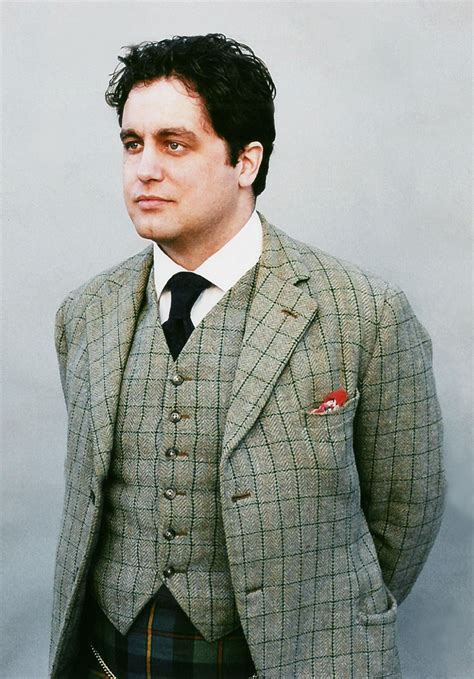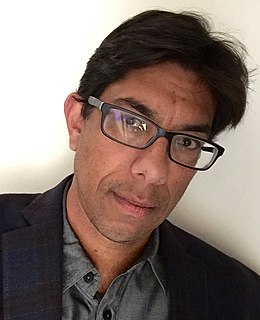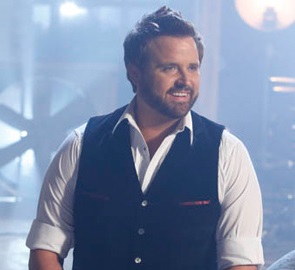Top 200 Puberty Quotes & Sayings - Page 4
Explore popular Puberty quotes.
Last updated on December 4, 2024.
Language development, for instance, has a critical period that begins in infancy and ends between eight years and puberty. After this critical period closes, a person’s ability to learn a second language without an accent is limited. In fact, second languages learned after the critical period are not processed in the same part of the brain as is the native tongue.
I think... girls have a hard time being interesting. It’s actually easier to be famous, or notorious, than it is to be interesting. In our world, girls climb very well until they hit puberty-sexual maturity-and then they begin to fall out of the tree. They start role-playing instead of thinking, flirting instead of learning. They start admiring how smart the boys are-or how athletic or how handsome-instead of concentrating on their own intelligence.
You always worry that everybody is secretly talking about you behind your back, everybody is secretly making fun of your voice, your figure, the way that you are during puberty, but it turned out, in real life, everybody was. On movie sets, they were all talking about these things, because they had to.
Everyone is born creative; everyone is given a box of crayons in kindergarten. Then when you hit puberty they take the crayons away and replace them with dry, uninspiring books on algebra, history, etc. Being suddenly hit years later with the 'creative bug' is just a wee voice telling you, 'I'd like my crayons back, please.
Holly winked. 'Do I look like a fly boy to you, Fowl?' Artemis had to admit that she didn't. Captain Short was extremely pretty in a dangerous sort of way. Black-widow pretty. Artemis was expecting puberty to hit in approximately eight months, and he suspected that at that point he would look at Holly in a different light. It was probably just as well that she was eighty years old.
Something went klunk. Like a nickel dropping in a soda machine. One of those small insights that explains everything. This was puberty for these boys. Adolescence. The first date, the first kiss, the first chance to hold hands with someone special. Delayed, postponed, a decade's worth of longing--while everybody around you celebrates life, you pretend, suppress, inhibit, deprive yourself of you own joy--but finally ultimately, eventually, you find a place where you can have a taste of everything denied.
I'm still in the middle of the transition. I'm still in man-boy mode. And that won't go away for a while. But it's a fun time to be in, because it's very rare that people get to work through this time. It's rare to see a John Cusack in Say Anything. It's rare that you'd find an actor right in the cusp of the child-to adult transition, just got through puberty, just getting into a different way of life. There's few movies like that, and few roles like that, so it's going to be tough to pick and choose. I guess the goal is good people, work with good people.
[My grandmother] was the assistant pastor at Palma Ceia Baptist Church in Hayward - my grandmother, Evie Goines. And so my mother was doing - I remember when my mother graduated from beauty college, so I was about 5, and so I guess she was about 21. And I just remember being there, taking the pictures and seeing her get her diploma and everything. But she was doing hair for many years. during that time, she kind of started to discover or tap into her religious studies. It was around the time I was starting to go through puberty and hitting, like, 12, 13.
Because, ten-year-olds of the world, you shouldn't believe what your teachers tell you about the beauty and specialness and uniqueness of you. Or, believe it, little snowflake, but know it won't make a bit of difference until after puberty. It's Newton's lost law: anything that makes you unique later will get your chocolate milk stolen and your eye blackened as a kid. Won't it, Sebastian? Oh, yes, it will, my little Mandarin Chinese-learning, Poe-reciting, high-top-wearing friend. God bless you, wherever you are.
All those tough guys who want to scare the world into seeing them as men . . . who don't know how to be a man with a woman, only abrute or a boy, who fill up the divorce courts; all those corporate raiders and rain-forest burners and war starters who want more in hopes that will make them feel better; . . . are suffering from Father Hunger. They go through their puberty rituals day after day for a lifetime, waiting for a father to anoint them and say "Attaboy," to treat them as good enough to be considered a man.
Why are entire flocks of industrial birds dying at once? And what about the people eating those birds? Just the other day, one of the local pediatricians was telling me he's seeing all kinds of illnesses that he never used to see. Not only juvenile diabetes, but inflammatory and autoimmune diseases that a lot of the docs don't even know what to call. And girls are going through puberty much earlier; and kids are allergic to just about everything, and asthma is out of control. Everyone knows it's our foods... Kids today are the first generation to grow up on this stuff.
I believe that part of what propels science is the thirst for wonder. It's a very powerful emotion. All children feel it. In a first grade classroom everybody feels it; in a twelfth grade classroom almost nobody feels it, or at least acknowledges it. Something happens between first and twelfth grade, and it's not just puberty. Not only do the schools and the media not teach much skepticism, there is also little encouragement of this stirring sense of wonder. Science and pseudoscience both arouse that feeling. Poor popularizations of science establish an ecological niche for pseudoscience.
Early on, girls begin to menstruate, which is dramatic but not obvious to their playmates. They grow taller and rounder, but underneath their makeup they are still recognizably themselves. For boys it is far more disorienting. Puberty comes later, sometimes much later, and its delay is humiliating. While the tall round girls are getting themselves up like grown women, the prepubertal boys, with their featureless, hairless bodies, are just dirty little kids who could pass for the children of the hypermature girls.
Let nature decide. When a cow is biologically ready to have sex relations, she mates with the nearest well-hung bull. When a flower is ready to scatter its seed, it pollinates. It's the same way throughout nature - except with man, who tries to postpone consummation of his sex drive, unsuccessfully for the most part, for six or eight years after he reaches puberty.
Youth should be kept strangers to all that is bad, and especially to things which suggest vice or hate. When the five years have passed away, during the two following years they must look on at the pursuits which they are hereafter to learn. There are two periods of life with reference to which education has to be divided, from seven to the age of puberty, and onwards to the age of one and twenty.
Adolescence has been recognised as a stage of human development since medieval times--long, long before the industrial revolution--and, as it is now, has long been seen as a phase which centers on the fusion of sexual and social maturity. Indeed, adolescence as a concept has as long a history as that of puberty, which is sometimes considered more concrete, and hence much easier to name and to recognize.
When a new post-war generation has grown to puberty and to youth and to manhood and womanhood, it should read, and it should be realistically told, of the futility, the idiocy, the utter depravity of war. For that matter, this instruction could begin at the age of six with the taking of those toy guns out of those toy holsters and throwing them in the ash-cans where they belong.
Back in 1982, when there were still only a manageable number of 'X-Men' titles on the racks (by which I mean just one), Marvel quite reasonably figured the world could stand another team of beleaguered mutant superheroes. And so were born 'The New Mutants,' junior X-Men whose powers had just begun to manifest at the onset of puberty.
Man is at his furthest remove from the animal as a child, his intellect most human. With his fifteenth year and puberty he comes astep closer to the animal; with the sense of possessions of his thirties (the median line between laziness and greediness), still another step. In his sixtieth year of life he frequently loses his modesty as well, then the septuagenarian steps up to us as a completely unmasked beast: one need only look at the eyes and the teeth.
I firmly believe that every six years, a person goes through a serious change. Think about it: At 6, you start school. At about 12, you start hitting puberty. And then it goes on. You start hitting these different mental levels, and people change. I think that's part of the reason the divorce rate is so high.


















